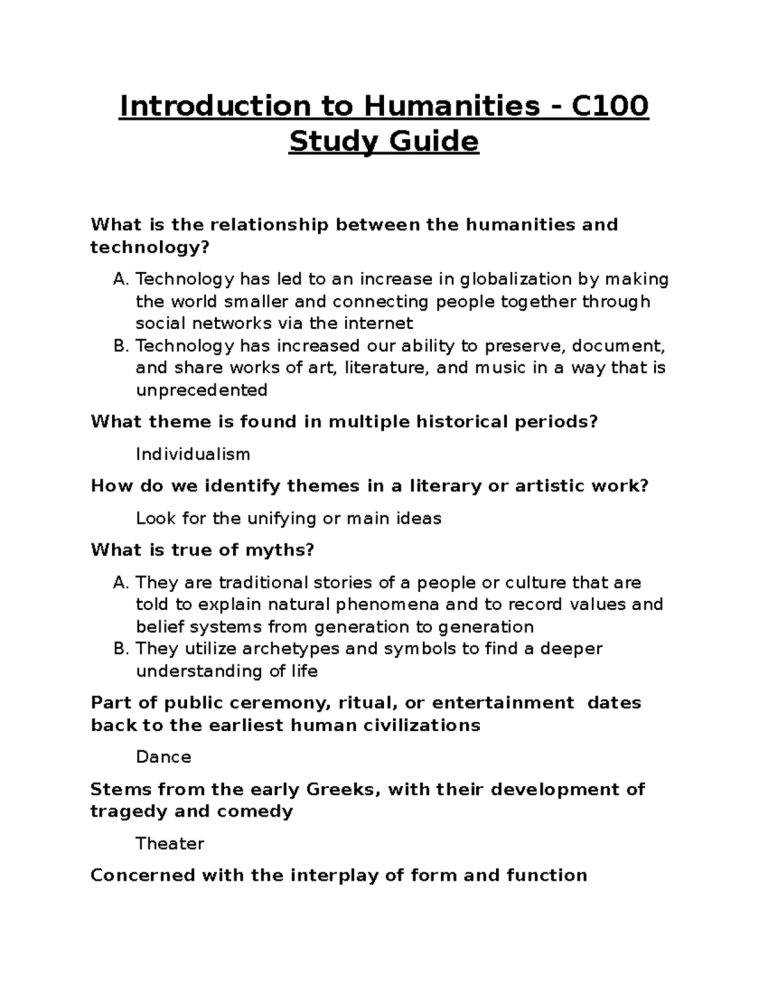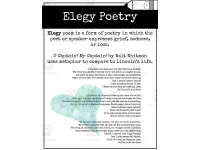
Katie Kitamura is a literary force whose latest work, *Audition*, deepens her exploration of horror in literature and the intricacies of human relationships. With a keen eye for detail, she weaves a narrative that oscillates between the mundane and the macabre, echoing the eerie tensions of midlife and familial dynamics. In a recent *Katie Kitamura interview*, she discussed how the themes of literature and performance are intricately linked in her storytelling, particularly in the context of her characters grappling with their identities. This new novel adds to the discourse on pandemic novel themes, as it subtly reflects the societal undercurrents shaped by recent global events. Kitamura’s work not only captivates readers with suspense but also invites them to contemplate deeper questions about privacy and performance in their own lives.
In examining Katie Kitamura’s oeuvre, one can appreciate her unique contribution to contemporary fiction. Her newest publication, *Audition*, reveals the delicate balance of reality and unreality, drawing on elements typical of the horror genre. Kitamura’s narratives often spotlight the duality of personal relationships, inviting readers to recognize the layered performances individuals undertake in daily existence. This dive into literature’s often unexplored territories resonates with what many identify as the influence of recent crises, leading to the emergence of literature that reflects on isolation and confinement. Such themes challenge the reader to engage with the unsettling, as they explore the hidden aspects of their relationships amid today’s evolving societal landscape.
The Intersection of Horror and Literature in Katie Kitamura’s *Audition*
In her latest novel, *Audition*, Katie Kitamura expertly intertwines elements of horror with literary fiction. Drawing inspiration from iconic horror stories such as Ira Levin’s *Rosemary’s Baby*, Kitamura explores the darker aspects of familial relationships against the backdrop of a familiar yet unsettling New York City apartment. The psychological tension builds as the characters grapple with secrets and identity crises, creating an environment that feels eerily claustrophobic. Readers find themselves questioning the very nature of reality as they delve deeper into the narrative, uncovering the nuances of fear that stem from the unknown and the familiar.
Kitamura’s exploration of horror isn’t merely about jump scares; it’s about the fear that arises when our understanding of those closest to us shatters. This theme resonates deeply with readers who appreciate how horror in literature can reflect real-life anxieties, especially during uncertain times. The uncanny moments in *Audition*, where family dynamics become increasingly strained and trust is tested, exemplify how horror can serve as a powerful lens through which to examine the human experience.
Pandemic Influences on Modern Literature: The Case of *Audition*
Katie Kitamura’s *Audition* has also been remarked upon for its pandemic undertones, although these elements are subtle and stem from the context in which the novel was written. The feeling of confinement, the subtle tensions arising from close quarters, and the overarching sense of uncertainty mirror the world many experienced during the COVID-19 pandemic. This atmospheric quality becomes a character in its own right, shaping relationships and adding a layer of complexity to the narrative. Kitamura herself acknowledges that, while the pandemic isn’t explicitly mentioned, its influence permeates the work, reflecting a collective subconscious experience.
This poignant connection to pandemic themes allows readers to engage with *Audition* on multiple levels. It invites an exploration of how global events shape personal narratives and interpersonal dynamics. Kitamura’s ability to weave these themes seamlessly into a fiction framework not only heightens the emotional stakes of her characters but also encourages discourse on how contemporary literature can provide a refuge or a mirror during tumultuous times.
Exploration of Performance in Katie Kitamura’s Narrative Style
A central theme in *Audition* is the concept of performance, particularly in how individuals present themselves and perceive others within their relationships. Kitamura’s protagonist, an actor, symbolizes the duality of authenticity and façade. The narrative invites readers to ponder how well we truly know our loved ones, as each character reveals layers of performance shaped by societal expectations and personal insecurities. This makes for a compelling examination of identity within the context of family dynamics and social interactions.
The exploration of performance in literature offers profound insights into the malleability of human nature. Kitamura suggests that through acting and mimicking others, we learn to navigate the complexities of life. However, as the narrative unfolds, cracks in these performances begin to show, prompting characters—and readers—to confront uncomfortable truths. Kitamura’s skillful handling of these themes resonates deeply in today’s world, illuminating how our identities are often constructed and deconstructed through shared experiences and social performance.
The Role of Privacy in Relationships: Insights from *Audition*
In *Audition*, Katie Kitamura delves into the delicate balance between intimacy and privacy within relationships. The protagonist grapples with the notion that complete transparency between partners is an unrealistic expectation. Through her reflections, Kitamura argues that a successful relationship allows for individual privacy—essentially acknowledging that there are aspects of ourselves that we may choose not to disclose. This perspective challenges societal norms that often equate sharing with trust and depth.
The exploration of privacy raises essential questions about the nature of connection. Kitamura’s narrative conveys that while understanding and intimacy are vital, respecting personal space and the individuality of one’s partner can foster a healthier dynamic. This nuanced approach reveals a significant layer of human relationships, encouraging readers to reflect on their boundaries and the secrets we choose to keep, further enriching the emotional texture of the novel.
Literature and Visual Arts: The Synergy in Kitamura’s Work
Katie Kitamura’s work resonates with a profound appreciation for visual arts, which harmoniously complements her literary exploration. Her background in literature includes an acute awareness of how visual imagery can enhance narrative depth. In *Audition*, the stark urban landscape of New York City serves not only as a backdrop but also as a character that reflects the psychological states of the characters. This synergy between literature and visual art forms a rich tapestry that invites readers to experience the story on multiple sensory levels.
Kitamura’s interest in the interplay between visual and written narratives highlights the importance of context in storytelling. By drawing upon various forms of art, she elevates her writing, allowing the reader to visualize the emotional undercurrents playing out in her narratives. This fusion of disciplines underscores her belief in the transformative power of storytelling—effectively showing how literature can mimic other art forms to evoke deeper emotional responses.
The Significance of Fiction in Contemporary Society
In times marked by sociopolitical upheaval and crisis, Katie Kitamura argues for the enduring importance of fiction. She posits that writing serves as a powerful tool for resistance and reflection, highlighting the idea that if literature were not impactful, it wouldn’t be subject to censorship or debate. Through her discussions regarding the role of fiction, particularly in her teaching at New York University, Kitamura advocates for a renaissance of critical thought through literary exploration.
Fiction allows us to confront our realities while also envisioning new possibilities. By engaging with diverse narratives, readers can expand their understanding of the world and cultivate empathy for experiences outside their own. Kitamura’s commitment to literature emphasizes that through storytelling, we can challenge dominant narratives, nurture connection, and imagine a more compassionate society. This belief resonates deeply in *Audition*, making it not merely a novel but a call to appreciate the transformative essence of literature.
Katie Kitamura: A Voice for the Modern Era
Katie Kitamura emerges as a vital voice in contemporary literature, addressing themes that resonate with the complexities of modern life. Her works, especially *Audition*, showcase her ability to navigate the intricate relationships that define our existence, engaging readers with her insightful observations. As we grapple with the uncertainties of the current era, Kitamura’s narratives provide solace and reflection, offering a mirror through which we can better understand ourselves and our relationships.
Kitamura’s contributions extend beyond her novels; she engages deeply with literary communities, inspiring future writers and readers alike. Her recent recognition as a Guggenheim Fellow attests to her significant impact within the literary sphere. By continuing to explore critical themes such as horror, intimacy, and performance, Kitamura solidifies her status as an essential commentator on the human condition, encouraging us all to delve deeper into the stories that shape our lives.
Audition as a Reflection of Urban Life and Isolation
In *Audition*, urban life is depicted with both vibrancy and starkness, capturing the unique blend of intimacy and isolation that characterizes city living. Kitamura’s setting—a cramped New York City apartment—serves as a microcosm of the broader societal issues of connection and alienation. The confined space becomes a breeding ground for tension, as the characters navigate the complexities of their relationships within an increasingly frenetic urban environment. This portrayal resonates strongly with readers familiar with the innate struggles of city dwellers.
Moreover, *Audition* cleverly employs the setting to reflect the psychological landscapes of its characters. The exterior world encroaches upon the intimate lives of the family, amplifying their fears and uncertainties. Kitamura’s keen observations about urban life speak to the universal longing for connection amidst chaos, making her narrative deeply relatable. In doing so, she captures the essence of the human experience in contemporary society, showcasing how our environments significantly shape our interpersonal dynamics.
The Art of Language in Katie Kitamura’s Writing
Katie Kitamura’s artistry in language is a hallmark of her writing, evident throughout *Audition*. Her prose is both precise and evocative, allowing readers to engage with the emotional weight of her characters’ experiences. Kitamura’s skillful command of language invites readers to slow down and contemplate the nuances of each scene, as she interweaves vivid descriptions with poignant dialogues. This attention to detail not only enhances the narrative but also creates an immersive reading experience that resonates long after the final page.
In an era where the value of language can sometimes feel diminished, Kitamura’s commitment to crafting meaningful narratives elevates the discourse surrounding literature. She emphasizes the power of words to connect individuals, provoke thought, and inspire action. Through her work, she advocates for the necessity of precision in language, especially during tumultuous times. By championing the art of writing, Kitamura affirms fiction’s crucial role in shaping our understanding of reality and fostering connections among readers.
Frequently Asked Questions
What themes does Katie Kitamura explore in her novel Audition?
In her novel *Audition*, Katie Kitamura explores themes of identity, performance, and the unsettling aspects of midlife. The protagonist wrestles with her relationships and the eerie feeling of familiarity turning into strangeness, which reflects a horror-adjacent atmosphere.
How is horror present in Katie Kitamura’s writing, particularly in Audition?
Katie Kitamura intentionally engages with horror in *Audition*, drawing inspiration from classic works like *Rosemary’s Baby*. The novel features uncanny moments that provoke fear and uncertainty about identity and relationships, creating a psychological suspense that resonates with horror literature.
Did the COVID-19 pandemic influence the writing of Audition by Katie Kitamura?
While *Audition* does not explicitly reference the pandemic, Katie Kitamura wrote it during this period, which inadvertently infused the novel with themes of confinement and family dynamics reminiscent of pandemic experiences, making it feel like a pandemic novel.
What motivates Katie Kitamura to write about performance in her novels?
Katie Kitamura’s interest in performance stems from the understanding that our identities are shaped through social interactions. In *Audition*, she examines how the performative nature of relationships can reveal deeper truths, often leading to unsettling realizations about ourselves and others.
How does Katie Kitamura incorporate privacy into her exploration of relationships in Audition?
In *Audition*, Katie Kitamura suggests that the myth of total transparency in relationships is unhealthy. The characters navigate their private selves versus public personas, highlighting the importance of maintaining some degree of privacy within intimate connections.
What is Katie Kitamura’s stance on the relevance of literature in today’s society?
Katie Kitamura believes that literature is more crucial than ever, particularly in a time of social and political upheaval. She argues that fiction enables us to envision alternate realities and challenges existing power structures, emphasizing the importance of language and storytelling.
What can readers expect from Katie Kitamura’s writing style in Audition?
Readers can expect a taut and engrossing writing style in *Audition*, characterized by a keen attention to language and the intricacies of human relationships. Kitamura’s prose skillfully navigates themes of intimacy, fear, and existential uncertainty.
How does Katie Kitamura’s role as a teacher influence her writing?
As a writing instructor at New York University, Katie Kitamura’s teaching allows her to engage with the critical elements of storytelling and language, which influences her work. Her belief in the power of literature to foster connection and imagination reflects in her writing approach.
| Key Points | Details |
|---|---|
| Katie Kitamura at Harvard | A conversation hosted by Mahindra Humanities Center featuring novelist Katie Kitamura and Claire Messud. |
| Recent Publication: ‘Audition’ | Kitamura’s fifth novel explores themes of identity, motherhood, and psychological horror, set against the backdrop of New York City. |
| Horror Inspirations | Kitamura’s writing engages with horror elements, drawing parallels with works like ‘Rosemary’s Baby’. |
| Pandemic Influence | Though unintentional, the book reflects the confined familial dynamics experienced during pandemics. |
| Theme of Performance | Exploration of personal identity and masked emotions. Kitamura suggests performance is intrinsic to human interaction. |
| Importance of Fiction | During crises, writing and reading fiction cultivate deeper connections and challenge oppressive power structures. |
| Support for English Majors | Kitamura believes literature fosters positive societal ties and enhances our ability to understand varied perspectives. |
Summary
Katie Kitamura emphasizes the importance of fiction in understanding human nature and navigating contemporary crises. In her latest novel, ‘Audition’, she draws on horror elements to reflect the complexities of personal identity and domestic life, a reflection of the times we live in. As a prominent writer and educator, Kitamura advocates for the significance of literature in fostering connections and imagination, showcasing why her work remains vital today.



